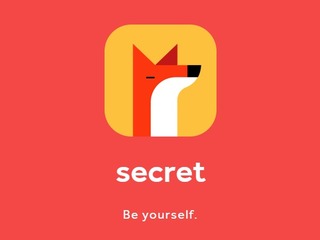
Remember when anonymous sharing was all the rage? That was before these apps became synonymous with bullying. Now that issue seems to have taken down one of the most well known apps in the space.
Secret, which only debuted in February of last year, is about to shut down, David Byttow, Secret’s founder and CEO, revealed in a blog post on Wednesday.
“After a lot of thought and consultation with our board, I’ve decided to shut down Secret,” he wrote. “This has been the hardest decision of my life and one that saddens me deeply. Unfortunately, Secret does not represent the vision I had when starting the company, so I believe it’s the right decision for myself, our investors and our team.”
Though he reiterated his belief in “honest, open communication and creative expression,” Byttow also called it “the ultimate double-edged sword, which must be wielded with great respect and care.”
Byttow began notifying employees of the shutdown on Tuesday and has already has began the process of issuing severance packages, sources told Buzzfeed, who first reported the shut down on Wednesday.
The app has had a spectacular fall from grace in a very short amount of time, gaining 15 million users in less than 10 months, but its popularity began to wave over time. This led to a major design at the end of December, switching to text-only posts rather than photos, which, according to TechCruch, made it look more like one of its biggest competitors, Yik Yak, erasing what had made Secret special in the first place.
Maybe the company should have taken the advice of JustFab CEO Adam Goldenberg: pivoting doesn’t work.
So what really happened here? Why did an app that started out so strong peter out so quickly? The answer might have to do with accusations of not doing enough to prevent cyberbullying, something that has plagued many of these anonymous apps.
Even as the app was launching, Byttow was already being questioned about this, and he insisted even then that Secret would take abuse seriously and would remove such content.
In August he wrote a blog post outlining what was, and was not allowed, on Secret, and asked the community to police itself.
“We make it easy for community members to flag a post when it violates Secret’s guidelines. When a user flags a post, they can choose the reason (bullying, self harm, etc). This helps prioritize the secrets that our moderation team reviews so we can react as quickly as possible to more serious violations,” he said.
In addition, he noted that some Secrets would be flagged automatically, and would then be reviewed by a moderator.
“We care deeply about the safety of our users. We have been and will continue to be fully committed to doing everything we can to keep Secret a safe place,” Byttow wrote. “This includes making our moderation platform better and faster, growing our trust-and-safety team, communicating policy improvements and involving the community as much as possible. We aim to publish transparent reports with a regular cadence.”
The reputation that Secret obtained as being unsafe for its members couldn’t have helped, but this cannot be the only reason that Secret failed. Yik Yak has also been accused of helping to promote cyber bullying, as well. In response to incidents of bullying and threats, that app has been age restricted to only those over 18.
As many entrepreneurs will tell you, if two people have the same idea, and both try to implement it, chances are one will fail. So maybe, as much as we would like there to be, maybe there is no one single reason that Secret sagged while Yik Yak and Whisper soared.
Secret, which was founded in 2013, raised $35 million in funding, including a $25 million round from Index Ventures, Redpoint Ventures, Garry Tan and Alexis Ohanian, SV Angel, Fuel Capital, Ceyuan Ventures, and several others, in July of last year.
That is not a small amount of money, of course, but it’s nothing compared to what some of Secret’s competitors have raised. Yik Yak, for example, has, in the least year, more than doubled what Secret has raised, with $73.5 million in funding. That included a $62 million round in November.
Whisper has raised $61 million, including a $36 million round in May of last year, at a reported valuation of $200 million.
As for the money that Secret did raise, what is left will be returned to investors.
“Secret, Inc. still has a significant amount of invested capital, but our investors funded the team and the product, and I believe the right thing to do is to return the money rather than attempt to pivot,” said Byttow. “Innovation requires failure, and I believe in failing fast in order to go on and make only new and different mistakes.”
VatorNews has reached out to Secret for comment on this report. We will update this story if we learn more.
(Image source: secret.ly)

















